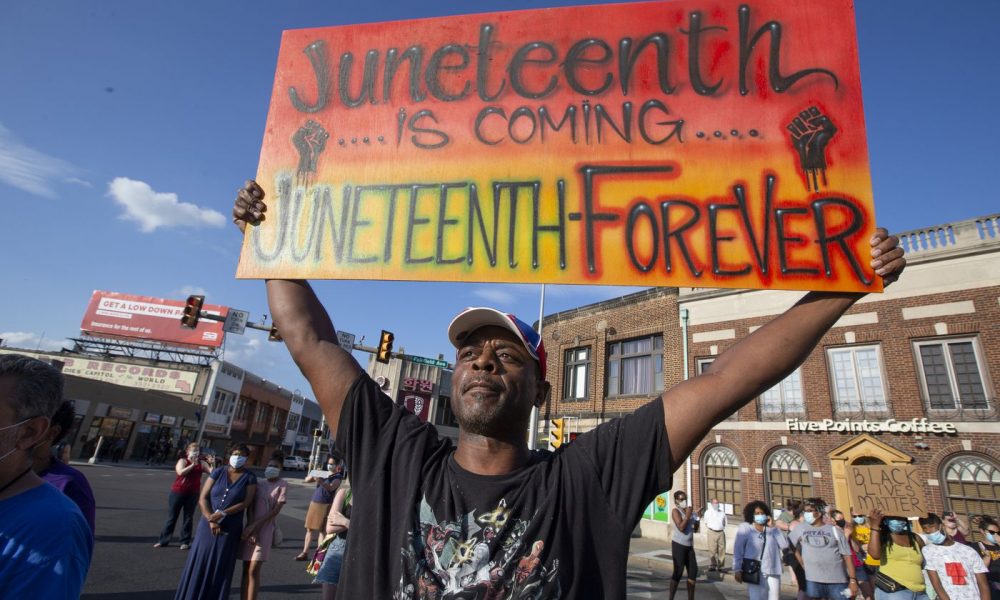On Tuesday, the U.S. Senate unanimously passed a bill marking June 19th as Juneteenth National Independence Day.
What We Know:
- Juneteenth is the commemoration of slavery ending in the U.S. in 1865. Former President Abraham Lincoln signed the Emancipation Proclamation on Jan. 1, 1863, ending slavery in the U.S. However, slaves in Galveston, Texas, were unaware of the proclamation and remained enslaved. On June 19, 1865, two months after the Civil War ended and Confederate General Robert E. Lee conceded, Union General Gordon Granger arrived in Galveston and informed the slaves that they were officially free.
- Those who celebrate Juneteenth do so by having picnics or cookouts with family and friends or attending parades or festivals held throughout their city. With Galveston being the birthplace of the holiday, the city holds many Juneteenth events and receives a large number of visitors to celebrate the holiday. Last month, the city unveiled a 5,000 square foot mural titled “Absolute Equality” that celebrates U.S. Black troops and is placed where Granger informed the slaves of their freedom. Texas made Juneteenth a state holiday in 1980, and through the years, every state, except South Dakota, honors the holiday in some way.
- The push to make Juneteenth a federal holiday comes from the civil unrest experienced throughout 2020. The police killing of George Floyd and Breonna Taylor reignited the Black Lives Matter movement, prompting protests against police brutality and racism across the country. With the increase of protests around the world, conversations of the treatment of Black Americans in the U.S. throughout decades increased as well.
- In response to the protest, various companies gave their employees June 19th off, which pushed the notion of making Juneteenth into a federal holiday. In 2020, Sen. Ron Johnson (R-WI) initially blocked a bill asking for Juneteenth to be a federal holiday because he felt it would cost too much to pay federal employees PTO. Ultimately he changed his mind and voted yes with the majority.
“Although I strongly support celebrating Emancipation, I objected to the cost and lack of debate. While it still seems strange that having taxpayers provide federal employees paid time off is now required to celebrate the end of slavery, it is clear that there is no appetite in Congress to further discuss the matter. Therefore, I do not intend to object,” said Johnson.
- While Juneteenth is on its way to becoming a federal holiday in the U.S., educators are fighting against laws removing critical race theory from their criteria. Last month a few states started adopting bills that dictate the type of material educators can teach regarding race and racism in the U.S. Although the bills focus on critical race theory, educators feel like they already don’t teach on the subject, and instead, the bill is stopping them from touching on matters of race in general.
- Gov. Kevin Stitt (R-OK) signed a bill that states that educators are forbidden to teach things like “one race or sex is inherently superior to another race or sex or that someone should feel discomfort, guilt or distress on account of their race or sex.” Educators believe their jobs are at risk if they decide to touch on the racial events of the past year or if a student brings it up, and they respond. Many educators in Oklahoma were going to speak on the 100th anniversary of the Tulsa Race Massacre but now feel as if they are pigeon-hole on how deep they can drive into the subject.
If confirmed, Juneteenth will be the 11th federal holiday celebrated in the U.S. The bill now needs the approval of the U.S. House of Representatives before it can be given to President Joe Biden for signature.



